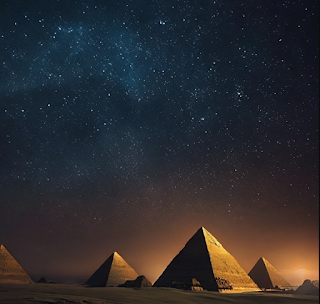Search Blog
Hit enter to search or ESC to close
Trending Now
Parshas Vaera - Bo - Were the Jews Affected by the Plagues?
- Get link
- X
- Other Apps
Parshas Shemos/Vaera - The Birth of a New Religion and the Age of Miracles
- Get link
- X
- Other Apps
Showing posts from January, 2010
Posts
Parshas Bo - Kill Your Gods
Parshas Bo begins with a command, now the urgent time has come when events will come together to finally bring Israel's Egyptian slavery to an end. Yet before they leave, the Jews are expected to slaughter a sheep, the Korban Pesach. Unlike the Matza, which resulted when unleavened dough did not have time to leaven because of the speed with which the Jews had to leave Egypt, the Korban Pesach was eaten at leisure. In fact it was forbidden to eat it quickly. What is the difference between the Korban Pesach and the Matza, both of which were obligations that one had to perform on the Seder night of the first day, or one had not fulfilled his paschal obligation. During the Haggadah we say, "Korban Pesach Zu Al Shum Ma, Al Shum shePasach Hakadosh Baruch Hu..." What is this Paschal regarding, because the Holy One Blessed Be He passed by our houses when he came to slay the Egyptian first born. What is the significance of the entire event. Why the first born and why the lamb
- Get link
- X
- Other Apps
Parshas Vaeira - Generations of Redemption
Parshas Vaeira begins with G-d informing Moshe, in response to Moshe's agonized appeal that his attempt to speak to Pharaoh had only worsened conditions for the Jewish people, that he is Hashem; וָאֵרָא, אֶל-אַבְרָהָם אֶל-יִצְחָק וְאֶל-יַעֲקֹב--בְּאֵל שַׁדָּי; וּשְׁמִי יְהוָה, לֹא נוֹדַעְתִּי לָהֶם and I appeared unto Abraham, unto Isaac, and unto Jacob, as El Shaddai, but by My name Hashem I did not reveal to them The question commonly asked of course is that we see many times when G-d did indeed address Avraham, Yitzchak and Yaakov as Hashem. Furthermore how does G-d answer Moshe by telling him this. To answer this we need to look at why Moshe is upset. Yes conditions have gotten worse for the Jews, but to our way of looking at it, this is only a temporary phenomenon soon to be relieved by the Exodus. Did Moshe Rabbeinu have so little faith that he had to challenge G-d on this score? To understand Moshe's problem, we have to remember that he had a different timetable
- Get link
- X
- Other Apps
Parshas Shemos - The Increase
Parshas Shemos begins with an increasingly paranoid and oppressive Egyptian Pharaoh who does not know Yosef and proceeds to enslave and then attempt to exterminate the Jews. The germ of the problem can be found in the statement "Asher Lo Yada at Yosef", the new Pharaoh did not know Yosef. Could it really mean that he had no idea who Yosef was? That seems unlikely, given that Yosef had died not that long ago, that he had been Egypt's second most powerful man, and that he had overseen the physical salvation and political and sociological transformation of Egypt. But rather it was a Pharaoh who did not know Yosef, his Hebrew name, only his Egyptian one, Tzafnat Paneach. What was so significant about Yosef's hebrew name? The significance, as I said last week, is in the meaning. Yosef means to increase. And what is the source of that increase, the source is Godly. In his dealings with Pharaoh, Yosef had always stated that his achievements were achieved through God. It
- Get link
- X
- Other Apps
Parshas Vayechi - A Dream of Exile and a Dream of Freedom
At the sunset of Yaakov's life he begins making the final arrangements for his burial and the future of his descendants. First he asks his son Yosef to bury him in the Maarat HaMachpelah, the Cave of the Patriarchs in Hevron. And then unexpectedly the father bows to the son. To understand why Yaakov bowed to Yosef we need to take a step forward first. As his father Yaakov has fallen ill, Yosef brings his sons, Menashe and Ephraim, to Yaakov for a blessing. And famously, their grandfather places his right hand on the head of Ephraim, the younger son, and his left hand on the head of Menashe, the elder son. Yosef objects, but Yaakov tells him, "Yaadati Bni, Yaadati. I Know My Son, I Know." Why is Yaadati repeated twice? Yaadati Bni, Yaakov tells Yosef. Just as I knew you were my special son and gave you a special place, so too I know that Ephraim is the special son, and I have given him a special place as well. What is the parallel between Yosef and his son Ephraim? W
- Get link
- X
- Other Apps




